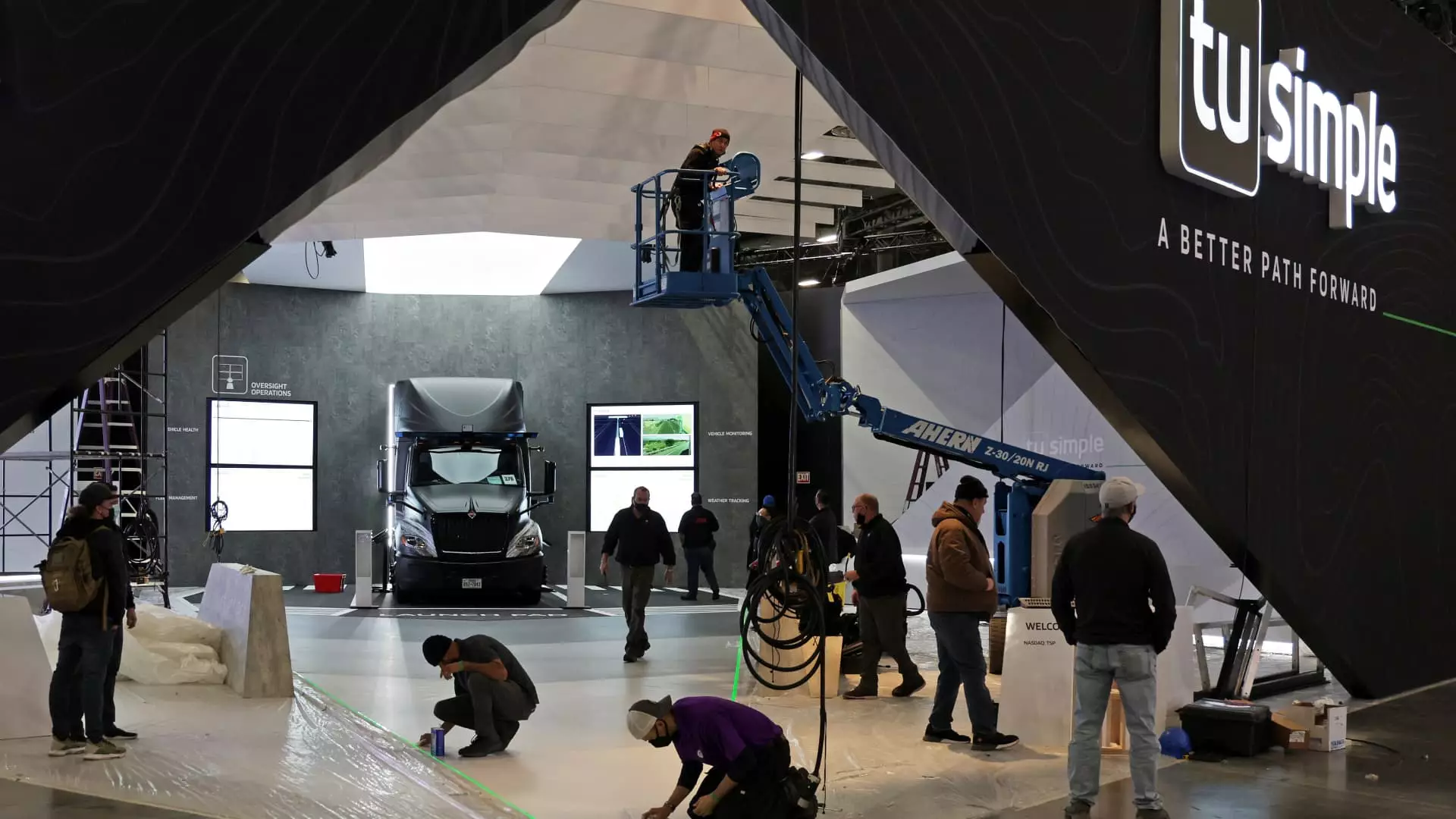In the competitive world of technology, adaptability can often be the key to survival, especially in industries that traverse the complexities of innovation and regulation. The recent rebranding of TuSimple to CreateAI marks a definitive pivot for a company that has weathered significant turmoil in the autonomous trucking sector. This strategic transformation not only highlights the dynamism within the technology landscape but also reflects the inherent challenges that accompany radical shifts in focus.
TuSimple, once an ambitious player in the self-driving vehicle market straddling both the U.S. and China, faced myriad obstacles that threatened its viability. Safety concerns surrounding its trucks, substantial financial losses, and a securities fraud lawsuit settlement of $189 million were monumental hurdles. The fallout culminated in its delisting from the Nasdaq earlier this year, raising questions about its future. In a bold move, the leadership of TuSimple recognized the pressing need for a change and shifted gears dramatically towards the fields of video games and animation under the new banner of CreateAI.
This transition not only represents a reallocation of resources but underscores the company’s decision to leverage existing talents in a new context. Cheng Lu, who returned to the CEO role after an earlier exit, has expressed confidence that this pivot could restore financial health. He forecasts breaking even by 2026, supported by a video game linked to the culturally significant martial arts novels of Jin Yong. Such a significant cultural underpinning could provide a substantial boost to the company’s visibility and marketability in a saturated entertainment landscape.
While it is crucial to remain optimistic about CreateAI’s potential, the reality of financial recovery must be scrutinized. The company reported a loss of $500,000 in the first three quarters of 2023, accompanied by an expenditure of $164.4 million in R&D. These figures indicate that while rebranding is a step toward innovation, it is also a gamble that demands patience and considerable investment. Expectations for “several hundred million” dollars in revenue by 2027 appear ambitious, given the current financial landscape and the fierce competition it will face from established gaming studios.
In conjunction with its rebranding, CreateAI established a partnership with Shanghai Three Body Animation to develop an animated feature film and video game based on the celebrated science fiction narrative, “The Three-Body Problem.” This strategic collaboration signifies a broader commitment to enter the expansive domain of generative AI and gaming. Cheng’s remarks about aiming to reduce the production costs of triple-A games by 70% raise important questions about the feasibility and sustainability of such an ambitious target, particularly when the global game production landscape is already evolving rapidly.
The foundation of CreateAI’s new trajectory rests on its artificial intelligence capabilities. The company seeks to extend its existing technical expertise, predominantly recognized for its autonomous driving software, into the realm of generative AI, similar to the capabilities showcased by OpenAI’s ChatGPT. The recent introduction of Ruyi, an open-source AI model designed for visual creativity, reflects a critical step in this direction, positioning CreateAI within a cutting-edge tech sphere.
Nevertheless, the path towards developing a successful generative AI platform is fraught with complexities, from securing viable partnerships to navigating regulatory challenges that could stymie progress. The ongoing U.S. restrictions on semiconductor access for Chinese firms pose additional barriers that CreateAI must strategically mitigate. Cheng’s assurance of utilizing a mix of cloud computing providers indicates a mindful approach to compliance; however, the long-term impact of governmental policies remains an unpredictable variable.
The rebranding of TuSimple to CreateAI is not merely a change in name but signals a profound shift in strategy and ambition. While the transition from a self-driving trucking company to an entertainment-focused AI enterprise is filled with potential, it is equally laden with risks that demand astute management and execution. The success of CreateAI will hinge on its ability to innovate in a crowded marketplace while deftly navigating the challenges posed by external regulations and internal operational effectiveness. As the company embarks on this audacious journey, industry observers will undoubtedly be watching closely to see if it can transform turmoil into triumph in the fast-evolving tech landscape.

Leave a Reply